Pyridoxine-dependent epilepsies: phenotypes and treatment outcomes
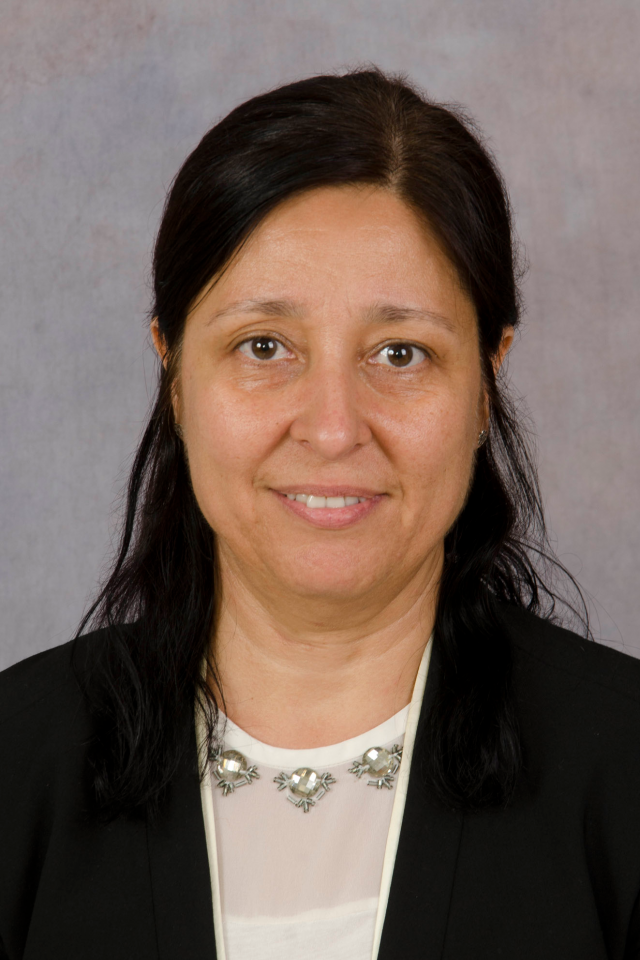
Saadet Andrews
MD, PhD, FCCMG, FRCPC, Biochemical Geneticist, The Hospital for Sick Children; Associate Professor, Division of Clinical and Metabolic Genetics, Department of Pediatrics, University of
Toronto, Toronto, ON
Dr. Andrews finished her medical school at Ege University. She completed her Pediatric Residency training at Istanbul University. She worked as a metabolic fellow at Vienna University. She finished biochemical genetics fellowship at University of British Columbia. She completed her PhD at Amsterdam Free University. She has been working as metabolic staff physician at The hospital for Sick Children since 2011. She is an Associate Professor of Pediatrics at University of Toronto.
Her clinical research interests include creatine deficiency disorders, pyridoxine dependent epilepsy, inherited neurotransmitter disorders. She provides genetic diagnostics for epilepsy and pediatric movement disorders.
Dr. Andrews and her team characterized first knock-out aldh7a1 zebrafish to study neuropathogenesis of pyridoxine dependent epilepsy.
Neuroimaging in Neurometabolic Disorders

Susan Blaser
MD, FRCPC, Pediatric Neuroradiologist, The Hospital for Sick Children; Professor of Neuroradiology, University of Toronto, Toronto, ON
Zellweger Spectrum Disorder: Update and Challenges for Therapy

Nancy Braverman
MD, MS, FACMG, Associate Professor, Dept. of Human Genetics and Pediatrics, McGill University Dept. of Pediatrics, McGill University Health Center (MUHC), Scientist, Peroxisome Disease Program, Child Health and Human Development, Research Institute of the MUHC, Montreal, QC
Dr. Braverman obtained her MD degree from Tulane University in New Orleans, completed her pediatric residency at Yale-New Haven Hospital, and her clinical and clinical biochemical genetics fellowship at Johns Hopkins Medical Center, where she remained on faculty. During this time she developed her research program in peroxisome disorders. She has been at McGill University since 2008 and is a tenured Associate Professor. She has led a successful bench-to-bedside research program that has had a huge impact in understanding peroxisome biology, developing novel therapies and in the clinical delineation of these disorders. She has played a strong role in teaching and leadership in the areas of peroxisome disorders and biochemical genetics and has won several awards. She serves on the medical advisory board to the family organization, theGFPD.org, has been SIMD board member, communicating editor for JIMD, chair of the ACMG Therapeutics committee and NIH-Therapeutics and Genetics study section member.
Neurodevelopmental Outcomes of Mucopolysaccharidosis Type I (MPS I)
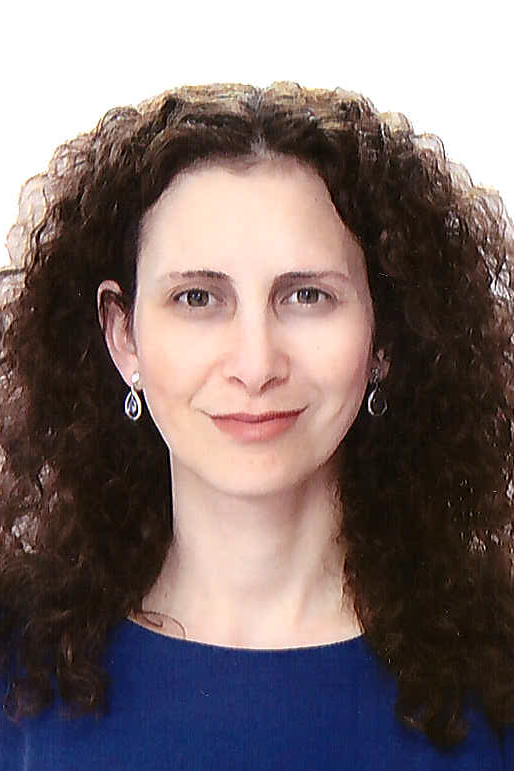
Michal Inbar-Feigenberg
MD, FCCMG, The Hospital for Sick Children, Toronto, ON
Dr. Inbar-Feigenberg has completed her medical training in Israel. She completed a General Pediatric residency program in 2009 followed by a fellowship in Clinical Genetics at the Hadassah Hospital, Hebrew University, Israel. Upon moving to Canada, she pursued an interest in epigenetics through a clinical and research fellowship at the division of Clinical Genetics, Hospital for Sick Children (2013). Thereafter, she had completed CCMG Biochemical Genetics fellowship training. Dr. Inbar-Feigenberg joined the Division of Clinical and Metabolic Genetics as a Staff Metabolic Geneticist in September 2016. During her training Dr. Inbar-Feigenberg developed a specific interest in lysosomal storage diseases and is follow the majority of lysosomal storage diseases patients at The Hospital for Sick Children. She actively participates in research projects related to lysosomal storage diseases.
Evaluating the Role of Autophagy in Peroxisome Biogenesis Disorders
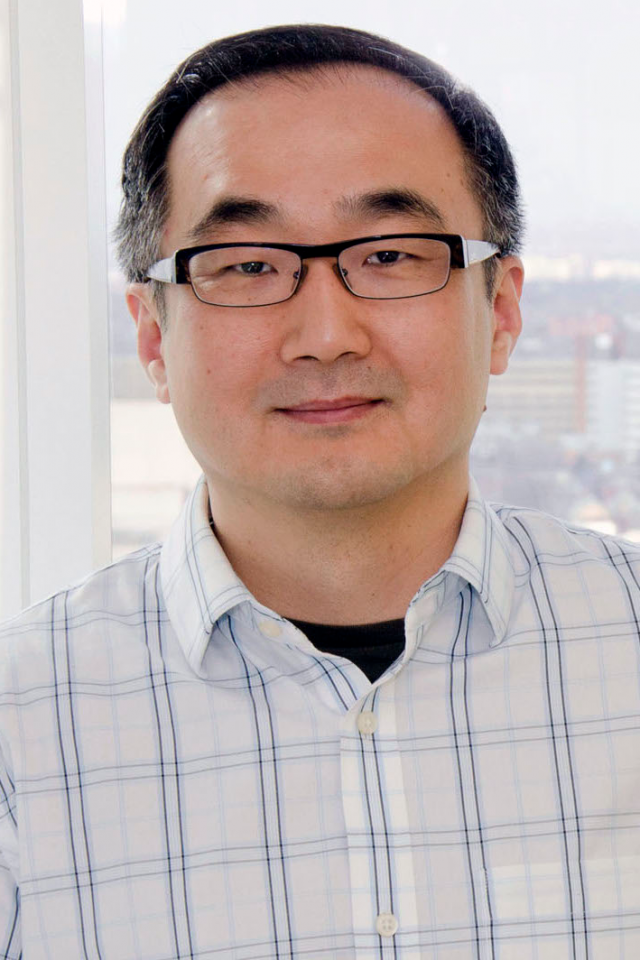
Peter Kim
PhD, Senior Scientist, Cell Biology, Hospital for Sick Children; Associate Professor, Department of Biochemistry, University of Toronto, Toronto, ON
Peter Kim is a Cell Biologist at the Hospital for Sick Children (Toronto) and an Associate Professor in the Department of Biochemistry at the University of Toronto. His research group studies the molecular mechanism of peroxisomes and mitochondria maintenance in mammalian cells in order to understand various diseases ranging from common diseases such as Parkinson’s disease and diabetes, to rare understudied diseases such as Peroxisome Biogenesis Disorders. Dr. Kim’s interest in peroxisome biology first germinated during his PhD studies at McMaster University in Hamilton, Ontario, Canada, where he studied the mechanisms of membrane protein trafficking. Inspired by the development of novel microscopy imaging techniques, he joined the laboratory of Jennifer Lippincott-Schwartz (NIH, Bethesda, USA) to explore the mechanism of peroxisomal protein trafficking. There he developed various tools to investigate the maintenance of peroxisomes in living cells. In 2009, he established his own group at the Hospital for Sick Children in Toronto, Canada, where he is examining the role of peroxisomes and mitochondria in Neurodegenerative Disorders. His research is supported by CIHR, NSERC, CFI, ORF and SickKids Foundation.
Mitochondrial SUMOylation in Cancer and Metabolism
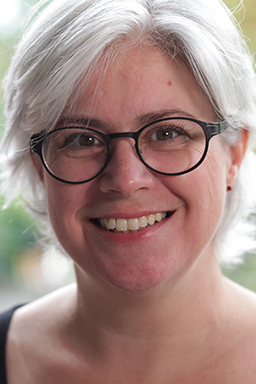
Heidi McBride
PhD, Montreal Neurological Institute, McGill University, Montreal, QC
The McBride laboratory focuses on the molecular mechanisms and function of mitochondrial dynamics, with key projects focused on mitochondrial fusion, fission and the formation of mitochondrial derived vesicles. The overarching theme of the lab is to understand the fundamental behavior of the mitochondria, and identify the molecular mechanisms of communication required to mediate cellular transitions, including metabolic, cell cycle, immune pathways and cell death transitions. Recent areas of research interest include mechanisms of mitochondrial contributions to neurodegeneration and cancer; the generation of inter-organellar contacts that facilitate metabolic flux; and the role of the mitochondria as a unique signaling platform in the cell.
Neuropsychiatric manifestations of neurometabolic disorders
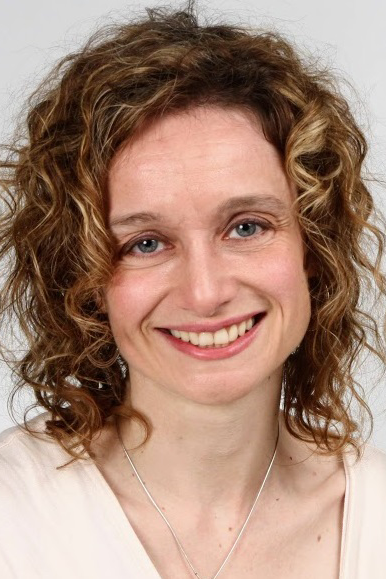
Chantal Morel
MD, FRCPC, FCCMG, Clinical and Metabolic Geneticist, Fred A. Litwin Family Centre in Genetic Medicine, University Health Network and Mount Sinai Hospital; Assistant Professor, Department of Medicine, University of Toronto, Toronto, ON
- BSc and MD degree at the University of Ottawa
- Medical Genetics residency at McGill University
- Biochemical Genetics fellowship at the University of Toronto
- First metabolic geneticist in the “adult world” in the GTA, full time staff in both Clinical and metabolic geneticist since July 2007
- Assistant professor of Medicine at the University of Toronto
- Actively involved in clinical research trials for treatment of metabolic diseases
- Follows over 500 adult patients with inborn errors of metabolism (over 1000 patients followed at UHN in Toronto – now the largest such clinic in Canada
- Medical teaching for medical students, residents, fellows, genetic counsellors
- Medical Genetics advisor for the North Bay Parry Sound District Health Unit, an outreach clinic for Genetics in Northern Ontario
Laboratory Diagnosis of Mitochondrial Diseases
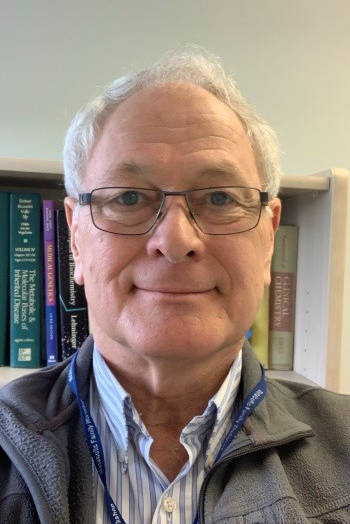
Tony Rupar
PhD, FCCMG, Professor in the Depts. of Pathology & Laboratory Medicine, Pediatrics and Biochemistry at Western University and the London Health Sciences Centre in London Ontario. Head,
Biochemical Genetics Laboratory, London, ON
Dr. Tony Rupar, PhD, is a Fellow of the Canadian College of Medical Geneticists and Professor in the Depts. of Pathology & Laboratory Medicine, Pediatrics and Biochemistry at Western University and the London Health Sciences Centre in London Ontario, Canada. He received his PhD from Western University and completed a post-doctoral research fellowship at the University of Cambridge. He heads the London Health Sciences Centre Biochemical Genetics Laboratory with a special interest in the laboratory diagnosis of mitochondrial diseases and is the current chairman of the advisory committee for the Province of Ontario Newborn Screening Program. Dr. Rupar’s research interests include, with Dr. Victoria Siu, the provision of genetic services including gene discovery to isolated Amish and Mennonite communities. He also maintains an active collaborative research program in developing gene therapies for lysosomal storage diseases, especially Fabry disease and metachromatic leukodystrophy.
Inborn Errors of Complex Lipid Metabolism and Remodelling: Focus on Neurological Presentations

Jean-Marie Saudubray
MD, Senior metabolic consultant, Centre de Référence Neurométabolique Adulte, Groupe Hospitalier Pitié-Salpêtrière, Paris, France
Professor Saudubray MD, born in 1937, trained in the Hopitaux de Paris (AP-HP). He was promoted Professor and Chairman of Paediatrics at the Université Paris Descartes in 1975 and spent in 1980 a sabbatical year at University California san Diego in the metabolic diseases screening laboratory of Southern California (chairman Prof Nyhan).
He set up an international metabolic reference centre in Necker Enfants Malades hospital Paris and trained in his ward many metabolic physicians who are now head of metabolic department in their respective institutions. He has designed many metabolic training courses in France, Europe , North Africa ,middle East, Pacific Asia, North and South America.
He has published about 440 peer-review papers, 200 invited chapters on IEM and described several new entities . He is editor of the reference textbook “Inborn metabolic diseases Diagnosis and treatment” (6th edition 2016) and wrote the chapter on the clinical approach and algorithms for IEM published in the Metabolic and Molecular Bases of Inherited Disease (Scriver). He gave about 400 plenary international conferences among them many keynote lectures and the Komrower lecture at 3 SSIEM symposium. He is honorary lifetime member of the SSIEM and member of the Scriver family visiting professorship in genetic medicine. He is currently the executive editor of the North American Metabolic Academy training programme and member of the scientific committee of the Recordati rare disease foundation. He is appointed as senior consultant advisor of the adult neurometabolic Unit, Pitié-Salpêtrière Hospital, University Pierre and Marie Curie, Paris France.
Creatine Deficiency Disorders: Present and Future
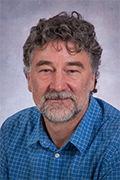
Andreas Schulze
MD, PhD, FRCPC, Professor Paediatrics and Biochemistry, University of Toronto; Head, Metabolic Genetics, Medical Director, Newborn Screening Program, Senior Associate Scientist, Research Institute, The Hospital for Sick Children, Toronto, ON
Andreas Schulze, born and raised in East Germany, received his Medical Diploma and MD in 1987, and his PhD in 1992 from the University of Leipzig, Germany. He completed residencies in Physiological Biochemistry at the Institute of Biochemistry in Leipzig and Pediatrics at the Ruprecht-Karls University in Heidelberg, and was board certified in Physiological Biochemistry in 1993 and in Pediatrics in 1999. In 2004, Dr. Schulze defended his Professorial Thesis (Habilitation) and received the Venia Legendi from the Ruprecht-Karls University in Heidelberg.
Dr. Schulze is a Professor in the Department of Paediatrics and the Department of Biochemistry at the University of Toronto. He is Head of the Metabolic Section in the Division of Clinical and Metabolic Genetics and Director of the Newborn Screening Program at the Hospital for Sick Children. He is also a Senior Associate Scientist within Genetics & Genome Biology at the SickKids Research Institute in Toronto.
Since discovering a first patient with an inborn error in the metabolism of creatine in 1994, Dr. Schulze developed a special interest in Creatine Deficiency Syndromes. He was first describing the full biochemical spectrum of GAMT deficiency and has since pioneered several innovative therapies for this disease. The Hospital for Sick Children recruited him as a clinician scientist in 2007 providing him with the environment to establish his own basic research group that is focused on:
- Creatine Deficiency Syndromes
- Regulation of Creatine Synthesis
- Pathophysiology of Guanidino Compounds, and
- Small Molecule Therapies
A small-molecule approach to heteroplasmy shifting
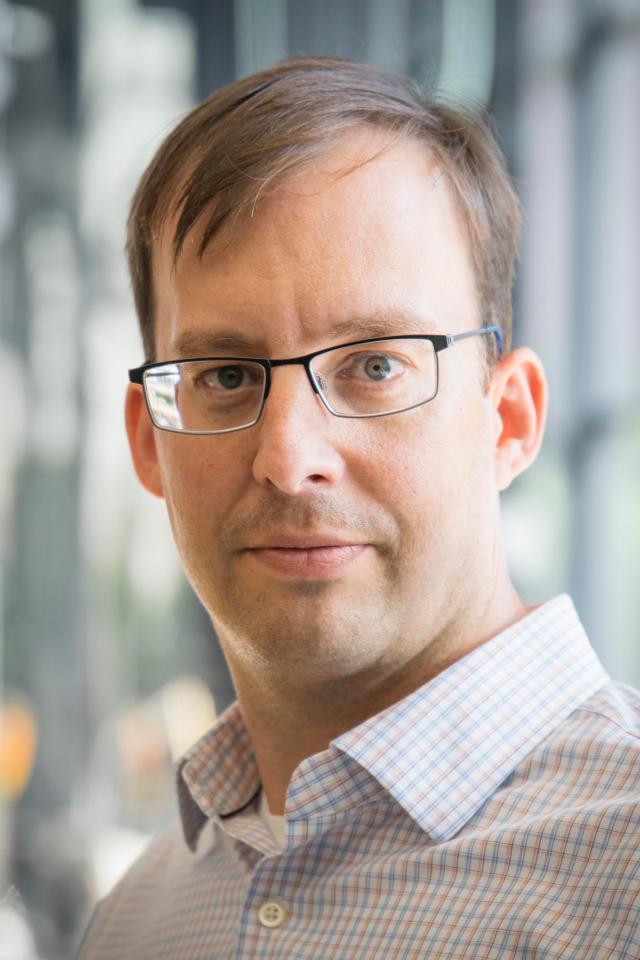
Neal Sondheimer
MD, PhD, Associate Professor of Paediatrics and Molecular Genetics, The University of Toronto, Toronto, ON
Dr. Sondheimer is a Metabolic Geneticist and a Clinician-Investigator in the Research Institute at The Hospital for Sick Children. His major area of research is in mitochondrial genetics.
Exercise and Nutraceutical Approached for the Treatment of Mitochondrial Cytopathies and Diseases Associated with Mitochondrial Dysfunction
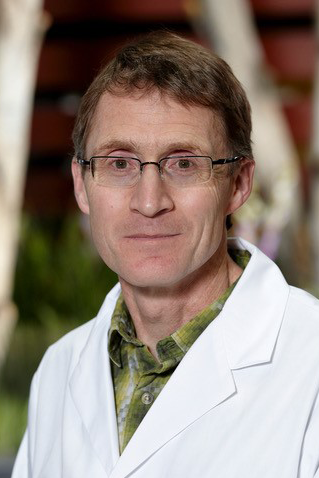
Mark Tarnopolsky
MD, PhD, FRCP(C), Professor of Pediatrics and Medicine, CEO and CSO, Exerkine Corporation, Director of Neuromuscular and Neurometabolic Clinic, McMaster University Medical Center, Hamilton, ON
Mark Tarnopolsky, MD, PhD, is the Clinical and Research Director of the Corkins/Lammert Family Neuromuscular and Neurometabolic Clinic at McMaster University. He holds an endowed chair at McMaster Children’s Hospital and Hamilton Health Sciences Foundation in Neuromuscular Diseases and is a Professor of Pediatrics and Medicine. He has received the Dr. David Green Award from the Muscular Dystrophy Association in 2005, the Barsky Lectureship for Excellence in Mitochondrial Medicine in 2007 and the honor award from the Canadian Society for Exercise Physiology 2008, the McMaster Distinguished Alumni Award for Science in 2012, and the International Biochemistry of Exercise Honor Award in 2015. His research focuses on nutritional, exercise, pharmacological and genetic therapies for neurometabolic (primarily mitochondrial), neuromuscular, and neurogenetic disorders as well as diseases associated with aging.